
0
+
Google Reviews

0
+
4.8 (2098 Ratings)
A Dynamics 365 Field Service Functional Consultant is a professional who specializes in configuring and customizing Microsoft Dynamics 365 Field Service, which is part of the Dynamics 365 suite designed for managing field service operations. Obtaining relevant Microsoft certifications, such as the Microsoft Certified: Dynamics 365 Field Service Functional Consultant Associate certification, can validate expertise in this role.


Curriculum Designed by Experts
Define and configure core field service components
• Define and configure key required security roles
• Configure territories, postal codes, and organizational units
• Configure characteristics and proficiency models
• Implement resource roles and categories
• Enable conditional Field Service settings
• Enable Microsoft Teams Integration
Configure product and service pricing
• Define required product and service types
• Configure minimum charge amounts and durations
• Determine how pricing rules affect the price that is applied to a product on a work order
• Associate products and services with price lists
• Define tax codes
Configure bookable resources
• Manage bookable resources
• Configure geocoding
• Define start and end locations for resources
• Determine the types of addresses to use
• Configure pay types and rates
• Configure working hours and working hour templates
• Manage time off requests
• Enable technician time tracking
Schedule multiple resources
• Determine the types of resources required
• Describe use cases for resource pools, crews, and Requirement groups
• Define Requirement groups and Requirement group templates
• Set up resource pools and crews
Integrate other tools with Dynamics 365 Field Service
• Implement Dynamics 365 Remote Assist for use with Dynamics 365 Field Service
• Configure and use Dynamics 365 Remote Assist one-time call
• Use Dynamics 365 Guides with work orders
Create and configure field service visualizations
• Configure dashboards
• Design and create field service charts
• Design reports by using the Report Wizard
• Design, create, and share Power BI reports and dashboards
• Understand the key Field Service Analytics and Insights work order summary metrics
Describe the work order lifecycle
• Configure work orders, including work order types and work order resolutions
• Configure work order lifecycle stages
• Configure booking status and work order status values
• Configure uses and capabilities for billing accounts, service accounts, and functional locations
Create and manage work orders
• Create a work order
• Add status and sub-status information to a work order
• Organize work orders and resources by geography
• Associate a work order with a price list, Service Level Agreement, and entitlement
• Close a work order
• Collaborate on work orders by using Microsoft Teams
• Prepare work order summary reports
• Configure work order resolutions
• Manage work order costs using not-to-exceed
Manage incidents
• Configure incident types and suggestions
• Assign requirement group templates to incident types
• Add service tasks to incidents
• Add products and services to incidents
Create and manage agreements
• Determine when to use agreements
• Define and configure agreement preferences and settings
• Configure automatic generation of work orders
• Configure booking preferences
• Configure agreement invoicing
• Create entitlements for agreements
Manage inspections
• Create inspections and ad hoc inspections
• Associate inspections with work orders and customer assets
• Describe use cases for analyzing results of inspections
• Create inspection templates
• Run reports on inspections
Manage scheduling options
• Schedule work orders by using the schedule board and schedule assistant
• Determine when to use each scheduling option
• Configure fulfillment preferences
• Configure quick scheduling (“quick book”)
Implement schedule boards
• Identify features and uses for Booking Requirements view
• Implement the integrated map feature
• Manually schedule work orders
• Reassign and reschedule work orders
• Move incomplete work orders
• Generate driving instructions for field agents
Manage schedule boards
• Describe use cases for multiple schedule boards
• Configure schedule boards
• Customize a schedule board
Implement the Schedule Assistant
• Apply constraints to resource queries
• Filter data
• Specify a search radius
• Troubleshoot the schedule assistant
Configure Universal Resource Scheduling
• Describe use cases for Universal Resource Scheduling
• Describe the role of resource requirements in scheduling
• Enable scheduling for a table
• Configure geocoding for a custom table
• Manage work hours calendar for requirements
• Describe booking timestamps, booking journals, and actuals
Describe the capabilities of the mobile app
• Deploy the mobile app
• Complete work orders
• Service and maintain customer assets
Set up the mobile app
• Configure security roles
• Customize the mobile app including forms, views, pages, and site maps
• Enable and configure location tracking and geofencing
• Configure offline profiles and synchronization features
• Configure deep linking
• Configure push notifications
• Configure barcode features
Manage inventory and warehouses
• Set up inventory and warehouses
• View product inventory
• Adjust inventory levels
• Transfer inventory between warehouses
• Manually update inventory by using inventory journals
Manage purchasing and product returns
• Describe the purchase order process
• Create purchase orders
• Create a list of receivable products for a purchase order
• Determine product return options
• Create return merchandise authorizations (RMAs)
• Create return to vendor (RTV) transactions
• Finalize returns
Implement Connected Field Service
• Describe IoT deployment options
• Identify use cases for Connected Field Service
• Manage and associate IoT devices
• Configure security roles for Connected Field Service
Define and configure customer assets
• Describe uses for customer assets
• Create and manage customer assets
• Configure products to enable automatic creation of customer assets
• Associate work orders with customer assets
• Create child assets
• Configure 3D asset models
• Define functional locations
Configure model-driven apps
• Create and configure forms
• Create and configure views
• Configure site maps
Create custom apps and automation
• Create task-specific canvas apps and custom pages
• Embed apps in Dynamics 365 Field Service
• Use custom Power Automate cloud flows to automate tasks and enhance Field Service
Configure Microsoft Power Pages
• Configure Field Service customer experience portal
• Configure self-service scheduling
• Configure pre-built Power Automate flows
• Track technician location
Capture customer feedback by using Customer Voice
• Create a survey
• Trigger distribution of a survey
• Apply formatting and branding to a survey
• Describe and analyze survey results including CSAT and Net Promoter Score (NPS)
• Describe survey elements including question types
Master in-demand skills with "Dynamics 365 Field Service Functional Consultant" Course Training. Learn to optimize resource management, improve service delivery, and enhance customer satisfaction. Enroll now to boost your career with expert guidance and hands-on training.
Explore exciting career opportunities with the "Dynamics 365 Field Service Functional Consultant" Course Training. Master skills in service delivery, scheduling, and automation. Enroll now to build a career in high-demand roles, enhance customer satisfaction, and gain industry-recognized certification.
Embrace cloud adoption with the "Dynamics 365 Field Service Functional Consultant" Course Training. Learn to leverage cloud solutions for efficient service management, real-time data access, and enhanced scalability. Enroll today to drive innovation and excel in cloud-based service delivery roles.
Achieve scalability and flexibility with "Dynamics 365 Field Service Functional Consultant" Course Training. Learn to adapt workflows, optimize resources, and manage dynamic service demands. Enroll today to gain expertise in delivering scalable, flexible solutions tailored to evolving business needs.
Optimize cost management with the "Dynamics 365 Field Service Functional Consultant" Course Training. Master efficient resource allocation, reduce operational costs, and streamline service delivery. Enroll now to enhance your expertise in cost-effective solutions and drive financial efficiency in field service operations.
Ensure security and compliance with the "Dynamics 365 Field Service Functional Consultant" Course Training. Gain expertise in data protection, regulatory compliance, and secure service workflows. Enroll now to build a career in delivering trusted and compliant field service solutions with Dynamics 365.
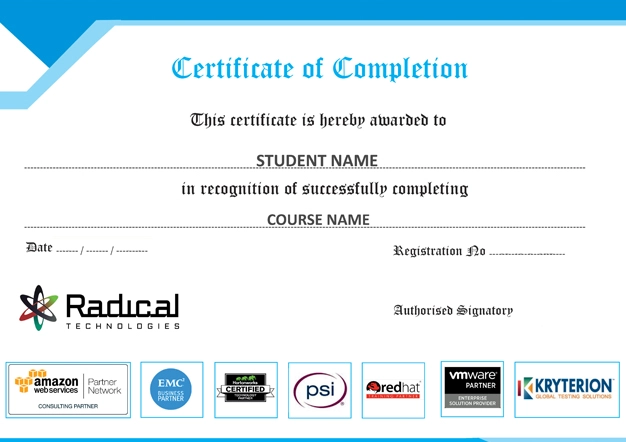


At Radical Technologies, we are committed to your success beyond the classroom. Our 100% Job Assistance program ensures that you are not only equipped with industry-relevant skills but also guided through the job placement process. With personalized resume building, interview preparation, and access to our extensive network of hiring partners, we help you take the next step confidently into your IT career. Join us and let your journey to a successful future begin with the right support.
At Radical Technologies, we ensure you’re ready to shine in any interview. Our comprehensive Interview Preparation program includes mock interviews, expert feedback, and tailored coaching sessions to build your confidence. Learn how to effectively communicate your skills, handle technical questions, and make a lasting impression on potential employers. With our guidance, you’ll walk into your interviews prepared and poised for success.
At Radical Technologies, we believe that a strong professional profile is key to standing out in the competitive IT industry. Our Profile Building services are designed to highlight your unique skills and experiences, crafting a resume and LinkedIn profile that resonate with employers. From tailored advice on showcasing your strengths to tips on optimizing your online presence, we provide the tools you need to make a lasting impression. Let us help you build a profile that opens doors to your dream career.

Infrastructure Provisioning
Implementing automated infrastructure provisioning and configuration management using Ansible. This may include setting up servers, networking devices, and other infrastructure components using playbooks and roles.

Applications Deployment
Automating the deployment and orchestration of applications across development, testing, and production environments. This could involve deploying web servers, databases. middleware, and other application components using Ansible

Continuous Integration
Integrating Ansible into CI/CD pipelines to automate software. build, test, and deployment processes. This may include automating the creation of build artifacts, running tests, and deploying applications to various environments.

The Dynamics 365 Field Service Functional Consultant Training in Bengaluru offered by Radical Technologies was excellent. The trainers were experienced and ensured I gained practical knowledge.
Enrolling in the Dynamics 365 Field Service Functional Consultant Online Classes in Bengaluru was one of the best decisions I made. The flexibility and quality of training were outstanding.
Radical Technologies is undoubtedly the best Dynamics 365 Field Service Functional Consultant Institute in Bengaluru. The course content and hands-on training helped me excel in my role.
The Dynamics 365 Field Service Functional Consultant Online Course in Bengaluru provided a perfect blend of theory and practice. Highly recommend it to anyone seeking certification.
I gained in-depth knowledge from the Dynamics 365 Field Service Functional Consultant Classes in Bengaluru. The interactive sessions were a game changer for me.
The trainers at Radical Technologies are highly knowledgeable. The Dynamics 365 Field Service Functional Consultant Online Certification in Bengaluru prepared me thoroughly for the exam.
The Dynamics 365 Field Service Functional Consultant Corporate Training in Bengaluru was tailored to our organization’s needs. It was highly effective and insightful.
Radical Technologies provided a comprehensive Dynamics 365 Field Service Functional Consultant Training in Bengaluru. The hands-on labs and real-world scenarios were very helpful.
I completed the Dynamics 365 Field Service Functional Consultant Certification in Bengaluru with confidence, thanks to the excellent support from the trainers.
The Dynamics 365 Field Service Functional Consultant Online Training in Bengaluru was well-structured and easy to follow. The flexibility allowed me to learn at my own pace.
If you're looking for the best Dynamics 365 Field Service Functional Consultant Course in Bengaluru, Radical Technologies is the place to be. The trainers are exceptional.
The Dynamics 365 Field Service Functional Consultant Classes in Bengaluru provided a deep understanding of the platform, helping me advance in my career.
The personalized attention I received during the Dynamics 365 Field Service Functional Consultant Institute in Bengaluru sessions made all the difference in my learning journey.
The Dynamics 365 Field Service Functional Consultant Online Certification in Bengaluru offered by Radical Technologies is a must for professionals aiming to upskill.
I benefited greatly from the practical exercises included in the Dynamics 365 Field Service Functional Consultant Online Course in Bengaluru. It was a valuable learning experience.
The Dynamics 365 Field Service Functional Consultant Corporate Training in Bengaluru conducted by Radical Technologies was highly professional and insightful.
The instructors at Radical Technologies made the Dynamics 365 Field Service Functional Consultant Training in Bengaluru engaging and easy to understand.
I was able to secure a better job after completing the Dynamics 365 Field Service Functional Consultant Certification in Bengaluru. Thanks to Radical Technologies!
The course content of the Dynamics 365 Field Service Functional Consultant Classes in Bengaluru was well-designed and relevant to industry needs.
The Dynamics 365 Field Service Functional Consultant Online Classes in Bengaluru were interactive and provided a seamless learning experience.
The support provided by the trainers during the Dynamics 365 Field Service Functional Consultant Online Training in Bengaluru was incredible. They were always available to clear doubts.
The practical approach in the Dynamics 365 Field Service Functional Consultant Course in Bengaluru helped me apply what I learned directly to my job.
Radical Technologies’ Dynamics 365 Field Service Functional Consultant Institute in Bengaluru is a great place to learn. The facilities and resources are top-notch.
I completed the Dynamics 365 Field Service Functional Consultant Online Certification in Bengaluru and found the course to be very well-organized and effective.
The trainers at Radical Technologies made learning the Dynamics 365 Field Service Functional Consultant Online Course in Bengaluru enjoyable and productive. Highly recommend it!







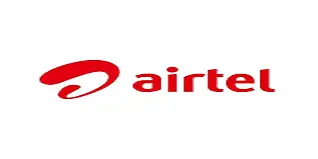
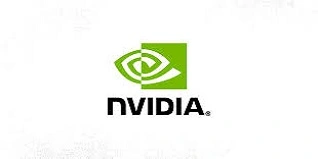
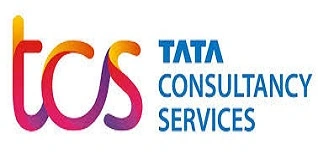

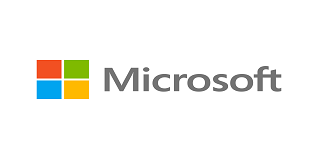
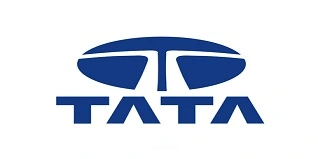

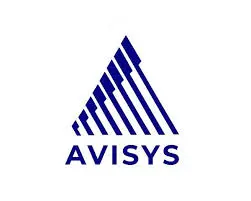
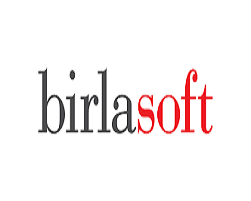
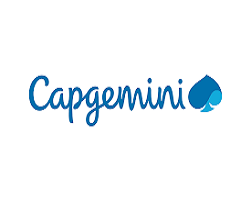
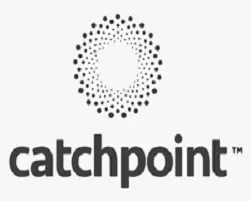
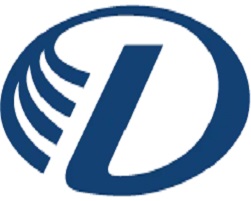
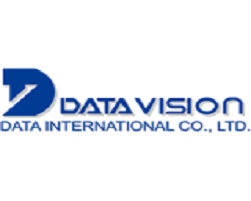
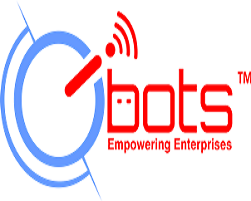
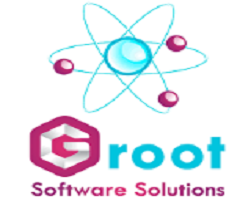
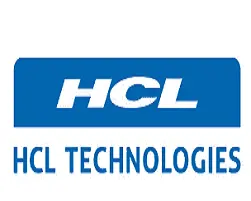
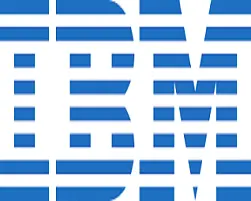
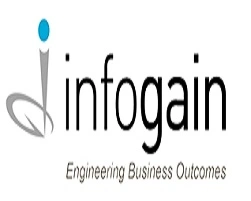
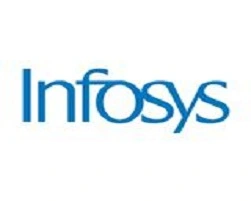
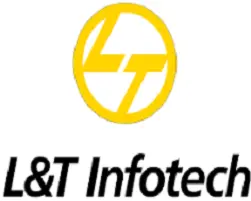
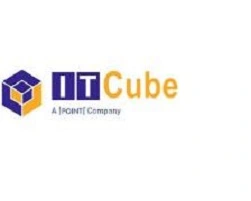
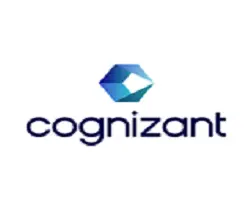
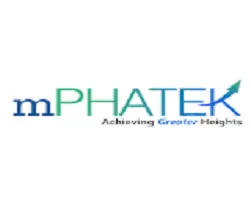
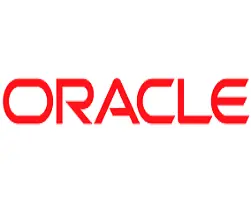
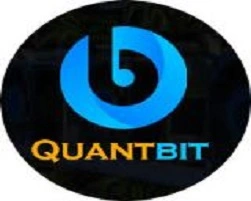
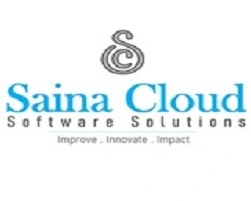




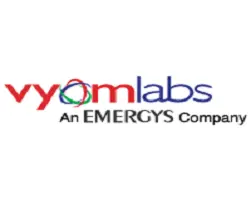
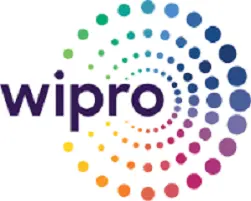
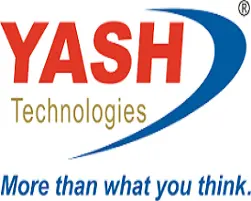
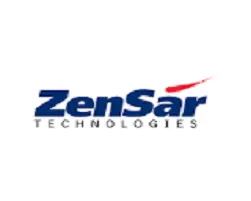
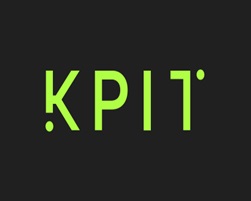
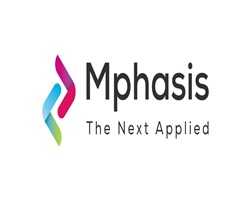
A Dynamics 365 Field Service Functional Consultant is responsible for implementing, configuring, and optimizing the Dynamics 365 Field Service solution. They work with businesses to understand their specific needs, customize the platform, and ensure that the solution enhances field service operations such as scheduling, dispatching, work order management, and customer service. The consultant also provides training and ongoing support to end-users.
Dynamics 365 Field Service helps streamline field service operations by providing features such as intelligent scheduling, real-time dispatching, mobile access for technicians, inventory management, and predictive maintenance. These tools help optimize resources, improve efficiency, and enhance the customer service experience by ensuring that the right technician is dispatched with the necessary tools and parts.
Key features of Dynamics 365 Field Service include:
Industries that rely on field service operations, such as utilities, manufacturing, healthcare, telecommunications, and retail, benefit the most from Dynamics 365 Field Service. The platform is designed to improve efficiency and customer service, making it ideal for companies managing a large number of field technicians, assets, or service calls.
Dynamics 365 Field Service enhances customer satisfaction by ensuring timely service delivery, minimizing service disruptions, and providing proactive support. The platform enables businesses to provide accurate estimates for service appointments, send real-time updates to customers, and resolve issues on the first visit, improving overall customer experience.
SLAs are crucial in defining the service expectations between the business and its customers. In Dynamics 365 Field Service, SLAs ensure that service commitments are met within specified time frames. Consultants configure SLAs to monitor response times, resolution times, and service quality, ensuring compliance with customer expectations and improving satisfaction.
The mobile application in Dynamics 365 Field Service allows technicians to access real-time information, such as work orders, customer history, and inventory data, directly from the field. This reduces paperwork, minimizes delays, and empowers technicians to complete jobs more efficiently. Additionally, they can capture data, request parts, and update work orders, all while on the move.
Preventive maintenance involves scheduled maintenance activities designed to prevent equipment failures before they occur. In Dynamics 365 Field Service, the platform uses predictive analytics to track asset performance, schedule maintenance tasks, and manage warranties. This reduces downtime, extends the lifespan of assets, and helps avoid costly repairs.
Yes, Dynamics 365 Field Service can seamlessly integrate with other Microsoft tools such as Dynamics 365 CRM, Power BI, and Office 365. This integration allows for a unified experience, enabling businesses to manage customer relationships, track performance metrics, and collaborate more effectively across departments.
A Functional Consultant is responsible for understanding the client’s business requirements, configuring the system to meet those needs, and ensuring a successful implementation. They work closely with stakeholders to customize workflows, set up dashboards, configure mobile applications, and provide training to users. The consultant ensures that the platform aligns with the company’s objectives and maximizes its value.
Resource optimization in Dynamics 365 Field Service is achieved through intelligent scheduling and dispatching. The platform takes into account factors such as technician skills, location, and availability to assign the right technician to each job. This ensures efficient resource utilization, reduces travel time, and increases the number of service calls that can be completed in a day.
Dynamics 365 Field Service offers robust reporting and analytics tools that help businesses track key performance metrics such as technician efficiency, first-time fix rates, and customer satisfaction. These reports can be customized to meet specific business needs, providing actionable insights to drive performance improvements and optimize field service operations.
Dynamics 365 Field Service provides real-time visibility into inventory levels, allowing businesses to track parts and materials across warehouses, vehicles, and field locations. This ensures that technicians have the necessary parts to complete their tasks and helps prevent stockouts, overstocking, or delays in service delivery.
Service call dispatching in Dynamics 365 Field Service is automated using intelligent scheduling. The platform considers factors such as technician skillsets, location, and availability, as well as customer preferences and service urgency. It automatically assigns service calls to the best-suited technician, ensuring that the right technician arrives at the right time with the appropriate tools and parts.
As businesses grow, the need to manage larger teams and more service calls increases. Dynamics 365 Field Service provides a scalable solution that can handle increased demand by automating key processes like scheduling, dispatching, and inventory management. The system can be easily adjusted to accommodate more technicians, assets, and service locations, enabling businesses to expand their operations without sacrificing efficiency or customer satisfaction.
Basavanagudi | HSR Layout | Sadashivanagar | Jayanagar | Koramangala | Whitefield | Banashankari | Marathahalli | BTM Layout | Electronic City | Rajajinagar | Domlur | Indiranagar | Malleshwaram | Yelahanka | Cooke Town | Nagarbhavi | Bannerghatta Road | Chandapura | Dasarahalli | Devanahalli | Anandnagar | Avenue Road | Byatarayanapura
I had an amazing experience with this service. The team was incredibly supportive and attentive to my needs. The quality of the work exceeded my expectations. I would highly recommend this to anyone looking for reliable and professional service."
I had an amazing experience with this service. The team was incredibly supportive and attentive to my needs. The quality of the work exceeded my expectations. I would highly recommend this to anyone looking for reliable and professional service."
I had an amazing experience with this service. The team was incredibly supportive and attentive to my needs. The quality of the work exceeded my expectations. I would highly recommend this to anyone looking for reliable and professional service."
I had an amazing experience with this service. The team was incredibly supportive and attentive to my needs. The quality of the work exceeded my expectations. I would highly recommend this to anyone looking for reliable and professional service."
I had an amazing experience with this service. The team was incredibly supportive and attentive to my needs. The quality of the work exceeded my expectations. I would highly recommend this to anyone looking for reliable and professional service."
Microsoft Dynamics 365 Field Service is a robust solution designed to help businesses manage and optimize their field service operations. It streamlines processes, improves operational efficiency, and ensures a seamless customer experience. As the demand for on-site services continues to grow, businesses need skilled professionals to implement and manage this dynamic tool. The role of a Dynamics 365 Field Service Functional Consultant is critical in ensuring that organizations maximize the benefits of this platform.
A Dynamics 365 Field Service Functional Consultant is responsible for implementing and configuring Dynamics 365 Field Service solutions to meet the unique needs of a business. This includes understanding the business processes, configuring the system, and ensuring that the field service operations run smoothly. The consultant works closely with stakeholders to ensure that the solution is customized according to the company’s requirements.
To excel as a Dynamics 365 Field Service Functional Consultant, the following skills and qualifications are essential:
While Dynamics 365 Field Service offers powerful capabilities, consultants often face challenges when implementing the solution. These challenges include:
To succeed in this role, individuals should follow a structured path:
Microsoft Dynamics 365 Field Service is an essential tool for businesses aiming to optimize their field service operations. The role of a Dynamics 365 Field Service Functional Consultant is critical in ensuring the effective deployment and utilization of this powerful platform. From streamlining operations to enhancing customer service, the applications of a Dynamics 365 Field Service Functional Consultant are diverse and impactful across multiple industries. Here, we explore the various applications of a Dynamics 365 Field Service Functional Consultant and how they contribute to business success.
1. Optimizing Field Service Operations
A Dynamics 365 Field Service Functional Consultant plays a central role in optimizing field service processes. By configuring the system to match the business’s unique needs, the consultant ensures that the organization’s scheduling, dispatching, and work order management functions are efficient and cost-effective. With capabilities like automated scheduling and intelligent dispatching, businesses can optimize resource allocation, reduce downtime, and streamline workflows, leading to enhanced operational efficiency.
2. Enhancing Customer Satisfaction
Customer satisfaction is a critical factor for businesses in the service industry, and a Dynamics 365 Field Service Functional Consultant helps improve this by providing solutions for proactive service delivery. Through features such as predictive maintenance and real-time updates, businesses can anticipate customer issues before they escalate. Consultants can configure Dynamics 365 Field Service to ensure timely responses, quick issue resolution, and effective communication between service agents and customers, thus improving overall customer experience and loyalty.
3. Managing and Monitoring Service Delivery
A key application of the Dynamics 365 Field Service Functional Consultant is the ability to monitor and track service delivery in real-time. By configuring dashboards, reports, and analytics, consultants enable businesses to gain deep insights into field service performance. These analytics provide valuable data on key performance indicators (KPIs), such as first-time fix rates, technician productivity, and customer satisfaction scores, which businesses can use to continually improve service delivery.
4. Streamlining Inventory and Asset Management
Effective inventory and asset management are crucial for field service operations, and consultants play a key role in setting up these functionalities within Dynamics 365 Field Service. The system provides real-time visibility into inventory levels, ensuring that technicians have the necessary parts and tools to complete their tasks. Additionally, consultants can configure the system to track assets, schedule maintenance, and manage warranties, which helps reduce costs and minimize service disruptions.
5. Improving Workforce Efficiency
Workforce efficiency is a primary goal for businesses that rely on field service technicians. A Dynamics 365 Field Service Functional Consultant helps improve workforce efficiency by implementing features such as mobile access and remote support. With mobile applications, technicians can receive real-time updates, access customer data, and complete work orders directly from the field. This reduces paperwork and delays, enabling technicians to work more efficiently, resolve issues faster, and enhance overall productivity.
6. Integrating with Other Systems
In most organizations, Dynamics 365 Field Service must integrate with other systems, such as Customer Relationship Management (CRM), Enterprise Resource Planning (ERP), and even third-party applications. A Dynamics 365 Field Service Functional Consultant is responsible for ensuring seamless integration between these systems, enabling smooth data flow across platforms. By integrating Dynamics 365 with other business tools, consultants help organizations gain a 360-degree view of their operations, improve decision-making, and eliminate data silos.
7. Proactive Maintenance and Asset Health Monitoring
A critical application of Dynamics 365 Field Service is the ability to deliver proactive maintenance and monitor the health of assets. The consultant configures the system to monitor equipment and schedule maintenance based on usage patterns or predictive analytics. This reduces the likelihood of unexpected breakdowns, extends the lifespan of assets, and helps avoid costly emergency repairs. By providing businesses with insights into asset performance, consultants enable organizations to implement preventive measures that improve overall system reliability.
8. Facilitating Compliance and Reporting
For industries with strict regulatory requirements, ensuring compliance is a priority. A Dynamics 365 Field Service Functional Consultant helps configure the system to meet industry standards and regulatory requirements. By designing tailored reports and automating compliance workflows, consultants enable businesses to track and document compliance in real-time. This application is particularly important in industries such as healthcare, manufacturing, and utilities, where compliance is vital for operational success.
9. Scaling Field Service Operations
As businesses grow, so do their field service operations. A Dynamics 365 Field Service Functional Consultant is instrumental in scaling operations by configuring the platform to handle larger service teams, more service calls, and complex workflows. The consultant ensures that the system is flexible enough to accommodate the expansion of service areas, integration of additional assets, and increased customer demands without compromising efficiency or service quality.
10. Improving Collaboration and Communication
Effective collaboration and communication among team members and customers are essential in field service operations. Dynamics 365 Field Service provides tools that help consultants foster collaboration, such as integrated communication channels, team collaboration features, and shared knowledge bases. Consultants configure these tools to ensure that technicians, service managers, and customers can easily communicate and share information, leading to faster resolutions and improved service outcomes.
Radical Technologies is the leading institute offering top-notch Dynamics 365 Field Service Functional Consultant Training in Bengaluru. With a proven track record of excellence, we are dedicated to empowering professionals with the skills and knowledge needed to excel in the ever-evolving field service industry.
Our comprehensive Dynamics 365 Field Service Functional Consultant Course in Bengaluru is meticulously designed to provide hands-on experience, in-depth understanding, and industry-relevant skills. Whether you’re a beginner or an experienced professional, our courses cater to all levels, ensuring you are job-ready and confident.
At Radical Technologies, we specialize in delivering tailored Dynamics 365 Field Service Functional Consultant Corporate Training in Bengaluru, enabling businesses to upskill their workforce for better efficiency and productivity. For individuals who prefer flexibility, our Dynamics 365 Field Service Functional Consultant Online Classes in Bengaluru and Dynamics 365 Field Service Functional Consultant Online Course in Bengaluru offer a seamless learning experience from the comfort of your home.
Our institute takes pride in being the most sought-after Dynamics 365 Field Service Functional Consultant Institute in Bengaluru, offering both classroom and virtual training. From practical workshops to real-world project implementations, our Dynamics 365 Field Service Functional Consultant Classes in Bengaluru are structured to meet the dynamic demands of the industry.
For those aiming for credentials, our Dynamics 365 Field Service Functional Consultant Certification in Bengaluru and Dynamics 365 Field Service Functional Consultant Online Certification in Bengaluru courses are recognized for their quality and relevance. Guided by expert trainers with extensive industry experience, our programs ensure that you gain the skills employers value most.
Join Radical Technologies today and elevate your career with the best-in-class Dynamics 365 Field Service Functional Consultant Online Training in Bengaluru. We are committed to your success, offering unparalleled support, advanced resources, and an interactive learning environment. Let us help you achieve your goals and stay ahead in the competitive field service landscape.


(Our Team will call you to discuss the Fees)

(Our Team will call you to discuss the Fees)
